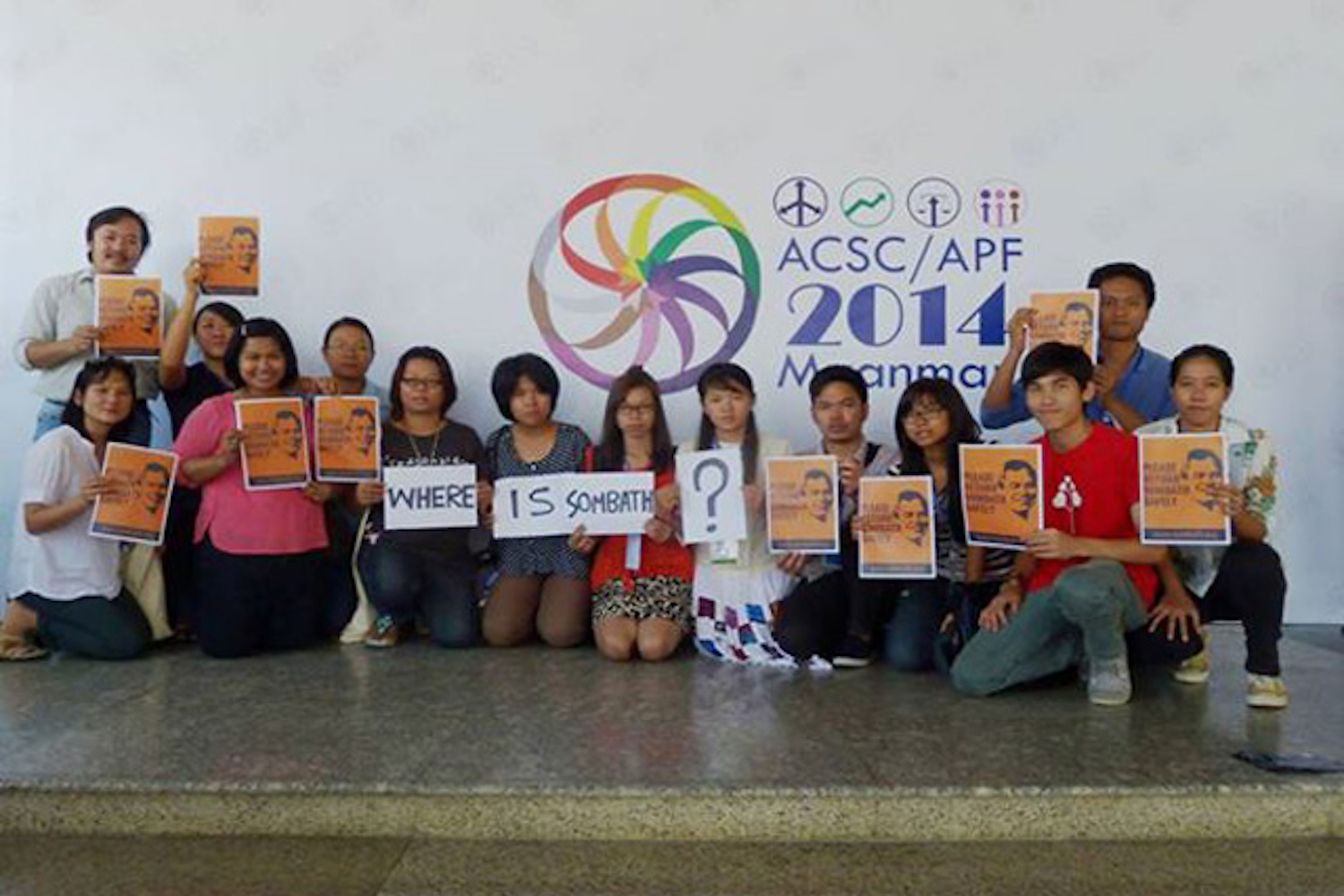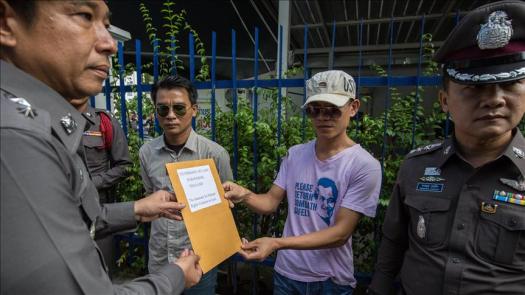[et_pb_section fb_built=”1″ admin_label=”section” _builder_version=”3.0.47″][et_pb_row admin_label=”row” _builder_version=”3.0.48″ background_size=”initial” background_position=”top_left” background_repeat=”repeat”][et_pb_column type=”4_4″ _builder_version=”3.0.47″][et_pb_text admin_label=”Text” _builder_version=”3.0.74″ background_size=”initial” background_position=”top_left” background_repeat=”repeat”]
On 17 December 2019 a panel discussion was held at the Foreign Correspondents Club in Bangkok, Thailand. Panelists included:
- Angkhana Neelapaijit: Director, Justice for Peace Foundation; Magsaysay Prize Award winner 2019, and wife of Somchai Neelapaijit who was enforcibly disappeared in 2004
- Ng Shui Meng: Wife of Sombath Somphone, who was enforcibly disappeared in 2012
- Katia Chirizzi: Deputy Director, Office of the UN High Commissioner on Human Rights, Southeast Asia
- Phil Robertson: Deputy Asia Director, Human Rights Watch
Click the link above for video of the event.
[/et_pb_text][et_pb_video src=”https://youtu.be/1HtQ-MSvDww” _builder_version=”3.19.15″][/et_pb_video][/et_pb_column][/et_pb_row][/et_pb_section]




 (Note: The Lao PDR has twice promised to ratify this convention in its Universal Periodic Review, but it has not yet done so.)
(Note: The Lao PDR has twice promised to ratify this convention in its Universal Periodic Review, but it has not yet done so.)

 The last
The last 




 Press conference at the
Press conference at the
 Introduction
Introduction